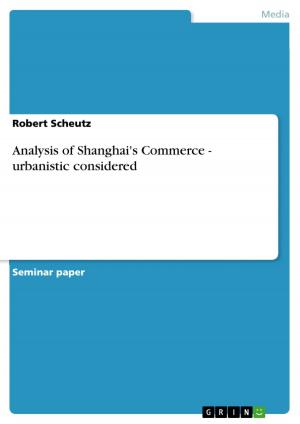| Author: | Edgar Klüsener | ISBN: | 9783638615273 |
| Publisher: | GRIN Publishing | Publication: | March 15, 2007 |
| Imprint: | GRIN Publishing | Language: | English |
| Author: | Edgar Klüsener |
| ISBN: | 9783638615273 |
| Publisher: | GRIN Publishing |
| Publication: | March 15, 2007 |
| Imprint: | GRIN Publishing |
| Language: | English |
Essay from the year 2006 in the subject History Europe - Other Countries - Newer History, European Unification, grade: 2.1, University of Manchester (School for Languages, Linguistics and Cultures), 13 entries in the bibliography, language: English, abstract: Nuri Sahin loves playing Football, and the 17 years old young man is fortunate, for he can actually make a living from this love. He is Germany's youngest professional player. Pundits regard the Borussia Dortmund forward as one of the greatest German footballing talents ever. However, if Turkey had qualified for the final round, Nuri Sahin would have been playing for them in the World Cup 2006 tournament in Germany. Although he was born in Germany and grew up in the small German town of Lüdenscheid, he still has decided to remain a Turkish citizen and play for Turkey rather than for Germany. 'I am one hundred percent Turkish', said Nuhin in a newspaper interview1, 'although there is undeniably a part of me that is German.' He is by no means the only one. Other members of Turkey's national team who were born and who are still living in Germany have also decided against playing for the country of their birth. Born in Germany, raised in Germany, educated in Germany and growing old in Germany, but still feeling Turkish rather than German - that sums up not only what Nuri Sahin sees as his identity, but also the way a significant proportion of the 1.76 Million2 Turks currently living in Germany feel about themselves. Turks constitute by far the largest group of immigrants in Germany. In the following text I will take a closer look into the situation of the Turkish Community in Germany, the way it has established itself and the problems and conflicts it experiences within German society.
Essay from the year 2006 in the subject History Europe - Other Countries - Newer History, European Unification, grade: 2.1, University of Manchester (School for Languages, Linguistics and Cultures), 13 entries in the bibliography, language: English, abstract: Nuri Sahin loves playing Football, and the 17 years old young man is fortunate, for he can actually make a living from this love. He is Germany's youngest professional player. Pundits regard the Borussia Dortmund forward as one of the greatest German footballing talents ever. However, if Turkey had qualified for the final round, Nuri Sahin would have been playing for them in the World Cup 2006 tournament in Germany. Although he was born in Germany and grew up in the small German town of Lüdenscheid, he still has decided to remain a Turkish citizen and play for Turkey rather than for Germany. 'I am one hundred percent Turkish', said Nuhin in a newspaper interview1, 'although there is undeniably a part of me that is German.' He is by no means the only one. Other members of Turkey's national team who were born and who are still living in Germany have also decided against playing for the country of their birth. Born in Germany, raised in Germany, educated in Germany and growing old in Germany, but still feeling Turkish rather than German - that sums up not only what Nuri Sahin sees as his identity, but also the way a significant proportion of the 1.76 Million2 Turks currently living in Germany feel about themselves. Turks constitute by far the largest group of immigrants in Germany. In the following text I will take a closer look into the situation of the Turkish Community in Germany, the way it has established itself and the problems and conflicts it experiences within German society.















